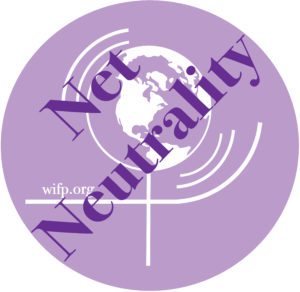Pages Are Turning
By Nora Massignotti-Cortese
Nora Massignotti-Cortese is a Chilean American writer, editor and translator with over twenty years experience on newspapers and magazines, with public relations, marketing and advertising agencies. She is a long-time Associate of WIFP.
Reviewing my beginnings in journalism, I endured thresholds prickled with thorns of unusual, dramatic, comic, and embarrassing experiences combined with joy and pride. My story reflects the real challenges that all women face in their everyday lives and work.
At 18, while attending my first semester at the University, I dared to visit
La Nación newspaper offices in Santiago, Chile with the idea of working there So I ventured to enter into the colossal newsroom where boisterous teletypes uttered the news.
Can I help you? A middle-aged man with the face of a good-natured father came out to meet me. I pitched my idea, throwing enthusiastic phrases to the left and right. When I calmed down, he asked me sympathetically: Would you like to be an intern without pay and anonymously? My heart overflowed with enthusiasm.
I was assigned to assist the manager of the entertainment page in reporting the programming of the two TV channels, 9 – University of Chile and 13 – Catholic University. My problem was that I didn’t have a typewriter, not even a TV set. However, I was able to accomplish this task with the help of my aunt Vittoria who “lent” me her Olivetti and a kind neighbor – Señora Teresa – who let me watch TV at her house.
My boss was a gentleman of few words and very relaxed. In the opinion of the other journalists, he was lazy. After being there two months, his nonchalant attitude helped me expand my writings. I developed a Women’s Supplement, which they accepted because I worked alone and even had to sell ads for this publication. The supplement was a success.
After that accomplishment, my boss offered me to be in charge of the entire entertainment section because he would be absent for a long weekend. When I tried to get some clarification or plan about the subject, his immediate response was, “you have editorial independence with a byline.”
I decided to interview Jaime Vadell, a handsome and talented theater and TV Chilean actor. I got carried away by my great fascination for him and made the big mistake of crossing the fine line from objective to subjective journalism. Fortunately, no one found out about my ulterior reasons. The following day, many journalists greeted me with applause, praising my report. However, the accolades lasted until a man that I had never seen before barked out my name. He was the Executive Director.
“Did you write this interview”?
Confused, I said ‘yes.’
“Do you have any idea who Roberto Rossellini is”?
When I tried to answer, he became vociferous. I observed the pained faces of the journalists that were begging me with signs and gestures to be quiet.
“How could you miss a tremendous opportunity to interview the most famous Italian film director”?
“Who the hell is Jaime Vadell and why did you dedicate a whole page to him”?
“YOU ARE FIRED!!!!!
Being a young intern, I did not have the proper authority to interview Rossellini. In retrospect, the irony of this melodramatic and ridiculous incident is that although it hurt me, it was an experience that inspired me to continue with more vigor. Nevertheless, I was just happy to have been published.
So far, I have faced a myriad of prejudice, but the gratification has been more significant. Since then, I have refined my journalistic abilities under the guidance of highly regarded male and female editors. I worked in Washington D.C. for the Hispanic media for over 25 years. My essays, artworks and poems have been published by The Creative Woman, a quarterly of Governors State Universityand by Voices a publication of the Arts and Humanities Program of Lombardi Georgetown University
In 1998, I created the magazines’ MUJER 2000 and Educación Más(under the umbrella of El Tiempo Latino). I interviewed notable women such as Guatemalan activist and Nobel Peace Prize winner Rigoberta Menchu, among others.
No matter what, the journey is littered with so many biases that we women must use coping skills and resilience to survive. We fight twice as hard for our fundamental rights and, unfortunately, reach half of the resolution.
Our efforts to achieve gender equality begin to pay off with the latest appointments of competent and experienced women editors. This action will elevate the level of leadership, even though it will take a century and a half to achieve global parity.
- In September 2011, Jill Abramson was the first woman to become an executive editor at The New York Times after 160 years
- In 2015, Audrey Cooper was named the first female editor-in-chief of The San Francisco Chronicle’s 150-year history.
- In 2020, Monica Richardson became the first black woman executive editor to lead The Miami Herald, El Nuevo Herald, and the Bradenton Herald after117 years
- In April 2021, Alessandra Galloni was named the first woman editor-in-chief of Reuters News Agency after 170 years.
- InMay2021, Sally Buzbee was named the first woman executive editor by The Washington Post after 143 years.
- In May 2021, Laurence des Cars was the first woman Director elected by the Louvre after 228 years.
This phenomenon is centuries in the making. The best illustration of this gender disparity is the Swedish Nobel Prize Academy that, since 1901, has awarded 962 laureates; only 57 women have received this honor.
In 1945, Gabriela Mistral was Latin America’s first-ever NobelPrize winner in Literature. She also was the victim of blatant chauvinism of the Chilean literary society that six years later deigned to grant her the Chilean National Prize for Literature. Since its creation, 50 male writers have been credited with the award –in stark contrast with only five female writers.
For these reasons, a new era of young international reporter platforms is incubating. Groups of experts are forming non-profit projects that will explore opportunities to the fullest extent for journalists of all races, carefully investigating the most immediate and urgent social problems.
The “carpe diem moment” of appointing women editors is turning pages, not fast enough, but at least … we have a chance to hear the vibrant sound of the pages turning.
Nora Massignotti-Cortese
Journalist, Artist, and Poet
 The Women’s Institute for Freedom of the Press
The Women’s Institute for Freedom of the Press
